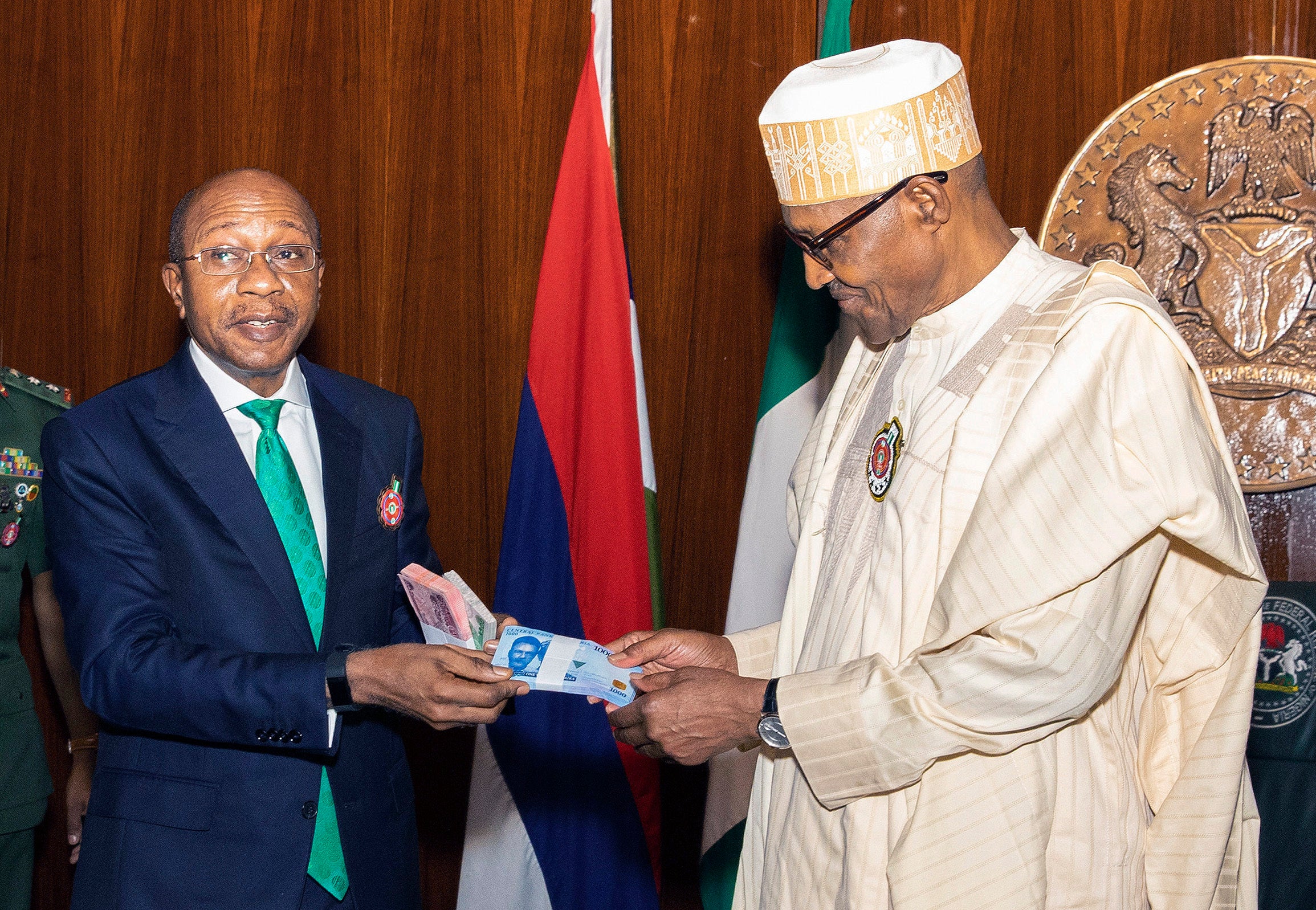Nigeria hopes new currency notes curb inflation, corruption
Nigeria has unveiled newly designed currency notes that the West African nation’s central bank says will help curb inflation and money laundering

Your support helps us to tell the story
From reproductive rights to climate change to Big Tech, The Independent is on the ground when the story is developing. Whether it's investigating the financials of Elon Musk's pro-Trump PAC or producing our latest documentary, 'The A Word', which shines a light on the American women fighting for reproductive rights, we know how important it is to parse out the facts from the messaging.
At such a critical moment in US history, we need reporters on the ground. Your donation allows us to keep sending journalists to speak to both sides of the story.
The Independent is trusted by Americans across the entire political spectrum. And unlike many other quality news outlets, we choose not to lock Americans out of our reporting and analysis with paywalls. We believe quality journalism should be available to everyone, paid for by those who can afford it.
Your support makes all the difference.Nigeria on Wednesday launched newly designed currency notes, a move that the West African nation's central bank says will help curb inflation and money laundering.
The newly designed denominations of 200 (5 U.S. cents), 500 ($1.10) and 1,000 naira ($2.20) also would drive financial inclusion and economic growth, said Godwin Emefiele, governor of the Central Bank of Nigeria.
Experts, however, are skeptical about such results in a country that has battled chronic corruption for decades, with government officials known to loot public funds that has caused more hardship for the many struggling with poverty.
Nigeria’s currency has not been redesigned in 19 years, and the new initiative is the latest introduced by policymakers in Africa’s biggest economy in their quest for a cashless and more inclusive economy.
The naira is “long overdue for a new look,” Nigerian President Muhammadu Buhari said at the launch. The new paper notes designed in Nigeria and featuring enhanced security “will help the central bank to design and implement better monetary policy objectives.”
More than 80% of the 3.2 trillion naira ($7.2 billion) in circulation in Nigeria are outside the vaults of commercial banks and in private hands, Emefiele said. Regulators last month announced a Jan. 31 deadline for old notes to either be used or deposited at banks.
With inflation at a 17-year high of 21.09% that is driven by soaring food prices, Emefiele said the new notes “will bring the hoarded currencies back into the banking system” and help the central bank regain control of the money being used in the country.
“The currency redesign will also assist in the fight against corruption as the exercise will reign in the higher denomination used for corruption and the movement of such funds from the banking system could be tracked easily,” the central bank chief said.
Analysts, however, say that the newly designed notes would yield little or no results in managing inflation or in the fight against corruption in the absence of institutional reforms.
“If you want to curb money laundering, your financial system needs to be better; if you want to curb ransom payment, security needs to be better; if you want to curb inflation, the level at which the total money supply in the economy is growing has to slow down — so it is not about cash,” said Adedayo Bakare, an analyst with Lagos-based Money Africa.
Bakare said the move by Nigeria’s central bank is at best an “expensive process that will cost the public a lot of pain because of the short period” required to either use or deposit cash in circulation.
At least 133 million people, or 63% of Nigeria’s citizens, are multidimensionally poor, according to government statistics.
“It could potentially slow down the economy if people do not have cash and people cannot exchange their cash for new notes at a fast pace,” he said. “You can’t phase out cash without fixing financial inclusion or electronic payment and even at that.”